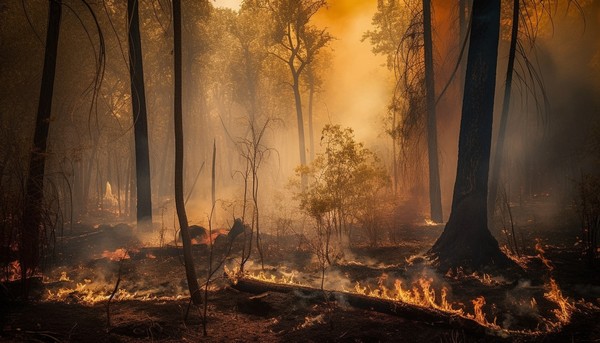A recent report obtained through theTransparency Lawby the Association of Forestry Contractors (Acoforag) reveals that, between 2017 and 2023, the Public Prosecutor's Office filed thousands of complaints for arson and illegal use of fire crimes in different regions of the country.
However, the data highlights an alarming reality:less than 2% of cases result in convictions, raising concerns about the judicial system's effectiveness in handling these crimes.
High number of complaints and scarce convictions
The analysis details thatLa Araucanía leads in the number of complaints with 4,059, followed byLos Ríos (2,512), Los Lagos (318), and Biobío (169). However, the conviction rate remains extremely low across all regions, ranging between0.6% and 1.6%.
This low conviction rate is concerning, as it suggests thatthe judicial handling of these crimes is not achieving effective results, which may encourage impunity and hinder efforts to combat intentional fires.
Factors affecting judicial effectiveness
Fires in Chile, particularly in forested and rural areas, have been a recurring problem in recent years. Among the main crimes associated with these incidents are:
- Fires endangering people(Art. 475 and 476).
- Forest fires(Art. 476).
- Fires causing material damage(Art. 477 and 478).
- Illegal use of fire(Forestry Law).
The lack of convictions could be due to various reasons, including:
- Difficulties in gathering evidence and determining liability.
- Lengthy judicial processes and lack of resources for criminal prosecution.
- Challenges in identifying those responsible, especially in cases of intentional fires.
Most affected regions and future challenges
La Araucanía and Los Ríos account for the highest number of complaints, which may be linked to the high incidence of forest fires and territorial conflicts in the area. Meanwhile,Biobío and Los Lagos report fewer cases, but with an equally low conviction rate.
Given this scenario, experts and industry groups have reiterated theurgent need to strengthen investigation mechanisms, improve coordination between prosecutors and police, and reinforce prevention and enforcement strategies. Without these changes, the fight against intentional fires will continue to face serious limitations, jeopardizing the country's environmental and social safety.
The community and authorities face the challenge of developing more effective policies to prevent these crimes from going unpunished and to ensure the protection of forests and affected areas.







Comentarios (0)
No hay comentarios aún. ¡Sé el primero en comentar!
Deja un comentario